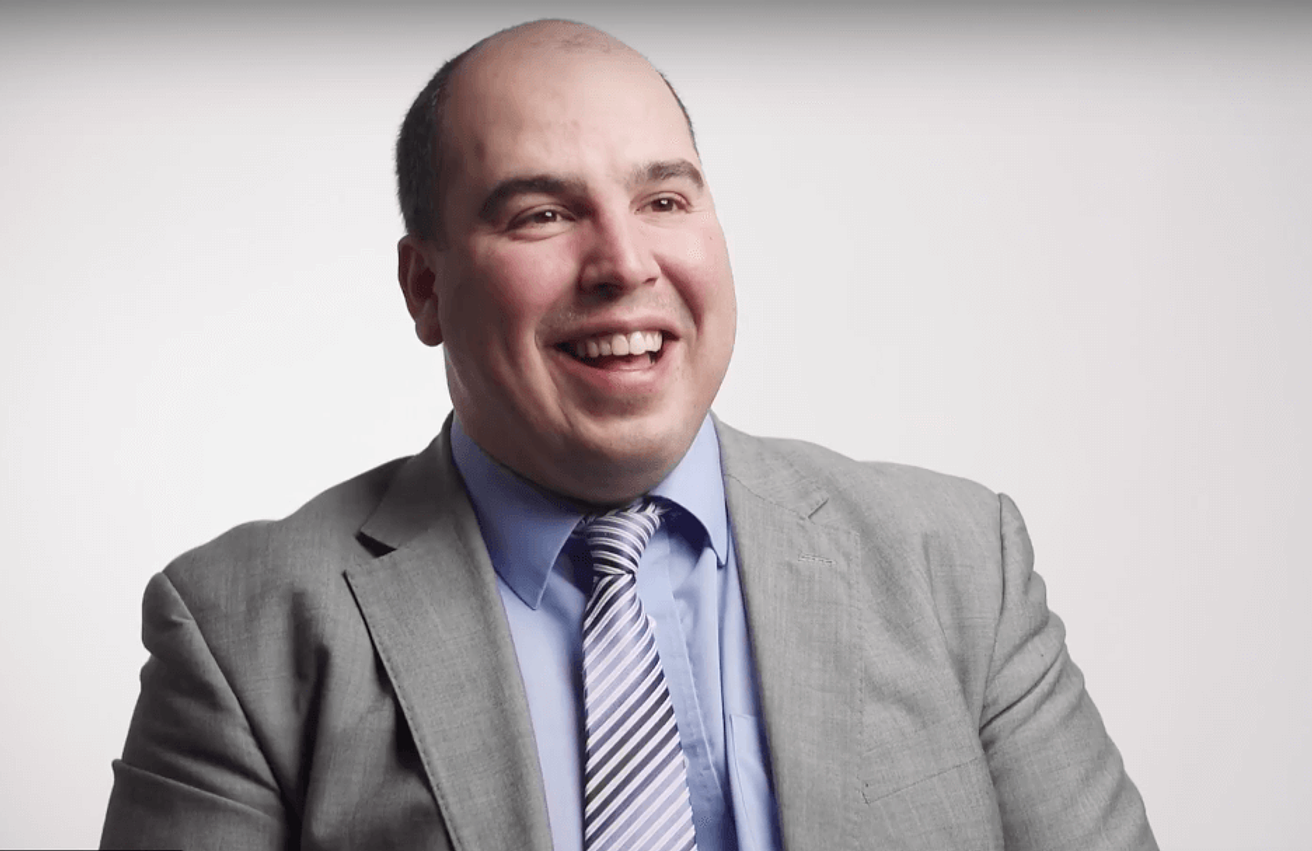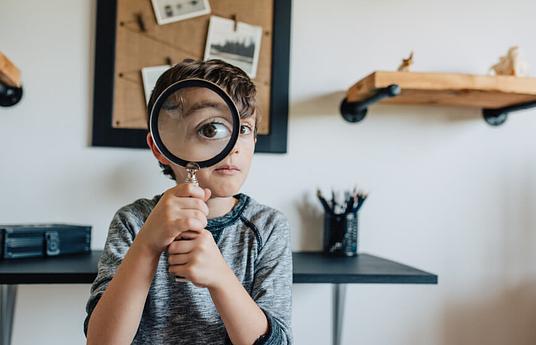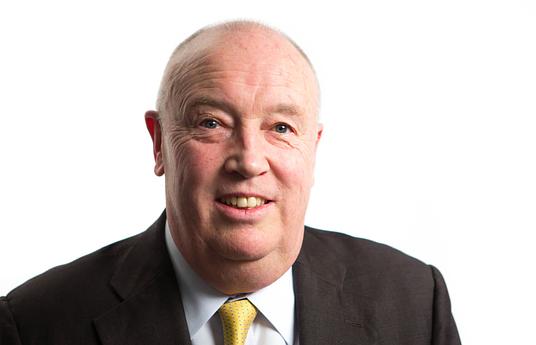Dr Adam Boddison
Dr Adam Boddison is Chief Executive at nasen, a leading SEND membership organization for education professionals in the UK. Adam has worked in teaching and leadership in primary and secondary schools and has had a broad portfolio of experience in the UK and abroad. He is now a Fellow of the RSA as well as a National Leader of Governance at the National College of Teaching and Leadership.
Do you feel that the current way we are educating children fully prepares them for the needs of the 21st century?
It’s a really interesting problem because in many ways you want students to have a safe environment to learn and grow in, but equally to prepare students and young people for the real world they have to have some exposure to the real world and trying to get the right balance of those two things is a real challenge.
In terms of the skills that they actually need to develop, there are two key things that stand out in my mind. The first one is around problem solving. It doesn’t matter what sphere of work you end up in, problem solving is absolutely crucial, every stage of that, from actually understanding a problem, interpreting it in a way you can tackle the problem and then going on to actually analyze possible solutions, looking for elegant solutions, efficient solutions, and then evaluating what you’ve done. That applies almost right across the board, so I think that’s one of the things whatever subject youngsters are studying in school, whatever life experiences they have, that has to play a part.
The second area of great importance, in my opinion, is getting the right balance between people skills and technology skills. There’s a real push towards increased use of technology, which is fantastic, but there’s a real risk that we lose some of the really important skills around being able to interact with other people and understand the nuances of fine communication between people. So I think it’s important we get the right balance between those and not throw the baby out with the bathwater by just focusing on technology.
What is the role of the teacher?
The role of the teacher has clearly changed overtime and even in different countries around the world you’ll see individual teachers taking on different roles in the classroom.
In my view teachers should be not so much an imparter of knowledge or a knowledge transfer agent, because teaching isn’t really about passing knowledge over - you don’t need a teacher to do that, you could read a book or go on the internet. I think a teacher is much more about having a facilitator, someone to inspire young people to want to go on and become an expert in certain fields. Also, to help guide them through a complex world of learning and join up young people, people with similar interests or interests that complement each-other, so they can spark off each-other and learn in that way. So, I see the role of the teacher as a facilitator rather than an imparter of knowledge.
If we think about one of the changes that’s happened over the last 20 or 30 years, the boundaries between subjects started to fall away. You see that particularly in higher education, where interdisciplinarity is the big buzz word of the century, in many ways, and this idea will probably come down into the school sector where actually it becomes less about the maths teacher teaching maths, but more about the maths teacher, the physics teacher and the English teacher actually working more collaboratively to deliver a more holistic curriculum. I think that communication and collaboration between teachers will be increasingly important as we move forward.
What do you feel the most exciting or effective learning environment would be?
In some ways this comes back to what I was saying before around the balance between safe learning environments and exciting learning environments. We’ve got to give young people exposure to the real world but equally we want to do that in a way where they can learn from making mistakes. They’ve got to feel they can make mistakes without it being some kind of disaster or end point and actually they can build on that. By exposing them to the real world, but doing it in a way they can develop their resilience over time, that’s really important. I think in the future probably these artificial structures we call schools now, I think we’ll see less of that and a lot more learning will happen out and about, in the real world, in communities, in workplaces, homes and so on. I think probably that’s the right way to go.
Do you think standardized testing is the most effective way to judge learning?
Standardized testing is an interesting one because it comes down to the fundamental premise of why we’re testing in the first place. If the test is about improving learning and so on then standardized testing isn’t particularly useful for that because improving learning is more formative it’s around helping the learner to know what they know, what they need to know and how they can improve, and helping those supporting that young person to facilitate that journey, but too often, and many countries are guilty of this, the standardized testing becomes about the nation, the school, the organization demonstrating that they are doing their job properly - it becomes about accountability measures rather than about learning and young people when that balance tips too far in the wrong direction then standardized testing is not the right thing.
It can be useful of course when you need to compare 2 students, when they are going for a job or university application, so there are times when it can be useful, but for me the premise of all testing should be helping young people to improve and if it doesn’t do that then it’s not the right thing to do.
I think we spend a lot of time putting training and professional development into our teachers. They are professionals and we should trust their judgement more. Part of the thing around testing is it’s almost as much a test of the teacher as it is the student. We’ve put all this time and investment in, these teachers know the young people incredibly well, in some cases the teacher spends more time with the young people than their parents do, so they are very well placed to be able to say what they think about how far a youngster has gone, what progress they have made and what areas they are strong in. I think we should trust their judgment and that should be absolutely fine.
What role do you think government should play in education?
Education is one of the key functions of most governments and I can understand why, because if you get the education right it can help to tackle a lot of other areas; good education means often you have to spend less on health or crime and so on, so I do understand that. But, my general view on this is that education should be depoliticized because the problem when it becomes political is that it also become personal and lots of individuals try almost to right the wrongs of their own education, but do that at scale. The truth is that everybody has their own individual journey when they go through education. So my opinion is that governments should distance themselves from education policy, they should appoint a permanent secretary, which should have cross party approval, and they should leave that person to get on with it. Education should be led by education professionals and not by politicians, in my opinion.
What was your favourite moment or experience in your own K12 education?
I was very fortunate really, I had a really interesting time at primary and secondary school. I went to a primary school that I suppose was quite rough, there was lots of fighting going on (it’s closed down now, so I feel like I can say these things) but it was a very challenging primary school, the behaviour was challenging and the area it was in was quite a deprived one. When Ii went to secondary school I was fortunate enough to get an assisted place at the local independent school and I was the only one from my school who went there. This was quite interesting because all those from my primary school thought I'd turned posh and went to this posh secondary school, while the people at the secondary school thought I was some kind of ‘scally’ from the estate, so I didn’t really have any identity for a long time, it made secondary quite tough, I couldn’t really identify with any groups. The real positive of this was, by the time I came to go to university, of course there there was a whole metropolis of people from different backgrounds, I felt really comfortable with almost every single group, whether they came from a very wealthy family, very deprived family background or anywhere in between, I felt quite comfortable in all those environments, and I think that served me really well in my work career as well - so it’s fantastic!
Did you have a favorite teacher?
It’s hard to pin down a favorite teacher. I was fortunate enough to have a number of great teachers but I did maths at secondary school and university and I guess it was a couple of maths teachers I had in my secondary school. What was interesting was not so much the maths they taught me but it was the things they told me that were slightly outside the curriculum that really got me quite inspired. It was around the time chip and pin was coming out and mobile phones and I started to realise the links between some of the maths we were doing in school and some of the real world maths. That got me quite inspired and they were prepared to spend quite a lot of time with me outside of lessons to give me that motivation.
THE NEXT 100 YEARS of education should… not forget the past, it’s important we keep an eye to the past. Not to say we don’t repeat anything from the past or that we do, but the past is really important because we’ve learnt lessons from that and there's some things that wouldn’t have worked 50 years ago but may work now and equally somethings that did work that wouldn’t work now. We don’t always need to reinvent the wheel. We also need to keep an eye to the future. The skills young people will need in 10 or 20 years time - we can’t even begin to imagine what they are now. So, it’s really challenging for teachers to be able to do that. In the next 100 years we need to get better at trying to predict what might be coming in the future and reflecting on the past that we’ve already had.


